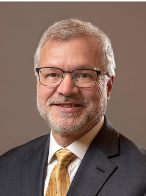A century of experiment and theory have produced a thorough understanding of heat conduction by phonons in simple inorganic crystals. By contrast, basic understanding of heat conduction by molecular vibrations in soft materials (amorphous and crystalline polymers, small molecule solids, and biological materials) is much less mature. Complex, disordered structures spanning multiple length scales are difficult to characterize and model. Low thermal conductivity, fiber morphologies, poor control of defects, and anisotropy created by molecular order create daunting challenges for experiment. The lack of basic understanding of heat conduction in soft materials hinders applied research on the discovery of low, high, and switchable thermal conductivity materials for thermal insulation, thermal management, and heat exchangers. I will discuss our work at U. Illinois on the thermal conductivity and elastic constants of a wide variety of polymeric materials in the form of thin films, fibers, and bulk materials, that span a factor of 300 in thermal conductivity, 0.06 to 20 W/m-K; and the high throughput experimental methods we are using to make our searches more efficient. Our most recent work emphasizes the changes in thermal conductivity that are produced by systematic variations in the molecular structure of epoxy thermosets and so-called “vitrimers”, polymer networks that incorporate dynamic covalent chemistry in the polymer network. A liquid crystalline epoxy comprised of a twin-mesogen structure shows a dramatic odd-even effect where the isotropic thermal conductivity changes by a factor of 5, from 0.2 to 1.0 W/m-K, when the length of an alkane linker is changed from an even to an odd number of carbon atoms. Vitrimers constructed from precisely defined alkanes show a variation in thermal conductivity of a factor of 10, from 0.10 to 1.0 W/m-K as a function of crystallinity.

David Cahill is the Grainger Distinguished Chair in Engineering, Professor of Materials Science and Engineering, and co-Director of the IBM-Illinois Discovery Accelerator Institute at the University of Illinois at Urbana-Champaign. He joined the faculty of the Department of Materials Science and Engineering at the U. Illinois after earning his Ph.D. in condensed matter physics from Cornell University and working as a postdoctoral research associate at the IBM Watson Research Center. He served as department head from 2010 to 2018. His research program advances physical insights on thermal transport at the nanoscale; extremes of low and high thermal conductivity; the thermal conductivity of soft matter; the thermal science of magnetic materials; and the transport of heat and mass in battery materials. Cahill received the 2018 Innovation in Materials Characterization Award of the Materials Research Society and the 2015 Touloukian Award of the American Society of Mechanical Engineers; and is a fellow of the MRS, the American Physical Society, and AAAS.
